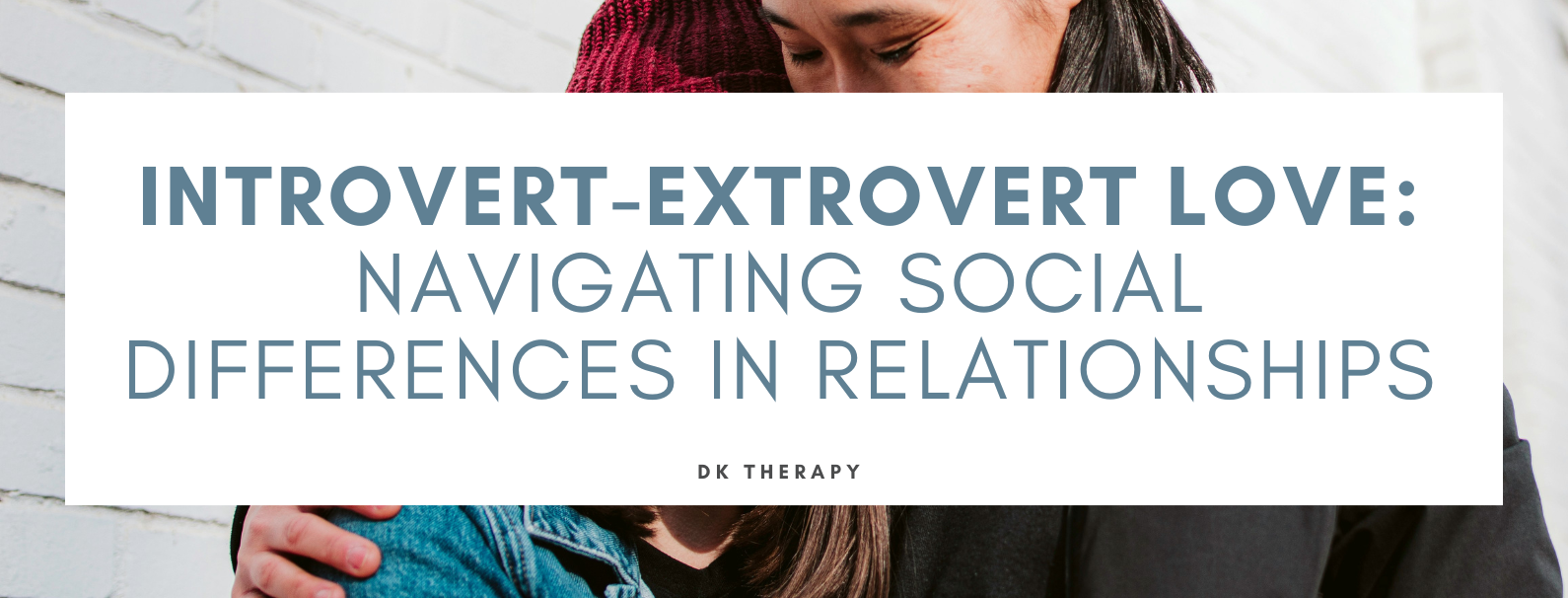
Relationships between introverts and extroverts can be enjoyably complementary, but they also come with a unique set of challenges. While one partner thrives in social settings, the other finds solace in their solitude. Understanding and respecting one another’s differences is essential when it comes to fostering a strong and fulfilling romantic connection.
Here are a few tips that will help make sense of the intricate dynamics of introvert-extrovert relationships.
 Find Common Ground
Find Common Ground
Despite distinct personality differences, introverts and extroverts can find common ground and take part in activities they both enjoy. Whether they’re exploring nature together, having a good time cooking at home, or pursuing a shared hobby, finding activities that cater to both partners’ preferences can help strengthen the bond between introverts and extroverts in a relationship.
Respect One Another’s Space
Introverts often need to spend time alone to recharge their energy reserves, while extroverts are at their best when they’re interacting socially. In these relationships, it’s essential for both partners to respect each other’s needs without taking things personally. Introverts need to understand that their extroverted partner needs to be around people somewhat often. Extroverts need to accept that their introverted partner may decline social gatherings to prevent getting overwhelmed. Each partner needs their own space to be unique.
Express Feelings in a Safe Environment
Introverts may struggle with expressing themselves verbally, and it’s important for their partners to be empathetic to the needs of the person they love. Both parties need to create a safe space together where each person can be comfortable enough to express their thoughts, feelings, and ideas without fear of judgment. This may involve setting aside dedicated time for personal conversations or finding alternative ways to communicate, such as through writing or artistic expression.
Compromise with Each Other
Both individuals in a relationship should be willing to compromise and adapt to each other’s unique needs. Introverts may need to step out of their comfort zones occasionally to accommodate their extroverted partner’s social plans, while extroverts should be able to understand when their introverted partner needs time alone to find balance. Being flexible and willing to meet each other’s needs is essential when it comes to maintaining a healthy long-term relationship.
Celebrate Your Differences
Instead of looking at differences as obstacles to overcome, celebrate them as opportunities for growth and learning. Introverts can learn how to embrace new social experiences with their extroverted partners, while extroverts can appreciate the depth and introspection that their introverted partners bring to the relationship the two share. Sometimes, opposites attract, and it’s okay that you and your partner don’t have similar personalities. Use your differences to bring out the best in each other.
Be Patient
Building a strong introvert-extrovert relationship calls for both patience and empathy from each person involved. Try to be patient with your partner as you navigate the challenges and complexities that your individual differences bring to the table. Do your best to empathize with your partner’s perspectives and make an effort to understand their needs and preferences. Don’t give up who you are as a person, but open your mind to new thoughts and feelings your partner may inspire.
Introvert-extrovert relationships can be incredibly rewarding and fulfilling when approached with understanding, empathy, and respect. By prioritizing open communication, mutual respect, and compromise, introverts and extroverts can build strong and lasting connections that celebrate their differences and enrich the life they’ve built together.
If you’re struggling with your relationship and you believe therapy would be helpful, we invite you to reach out to us at DK Therapy.




